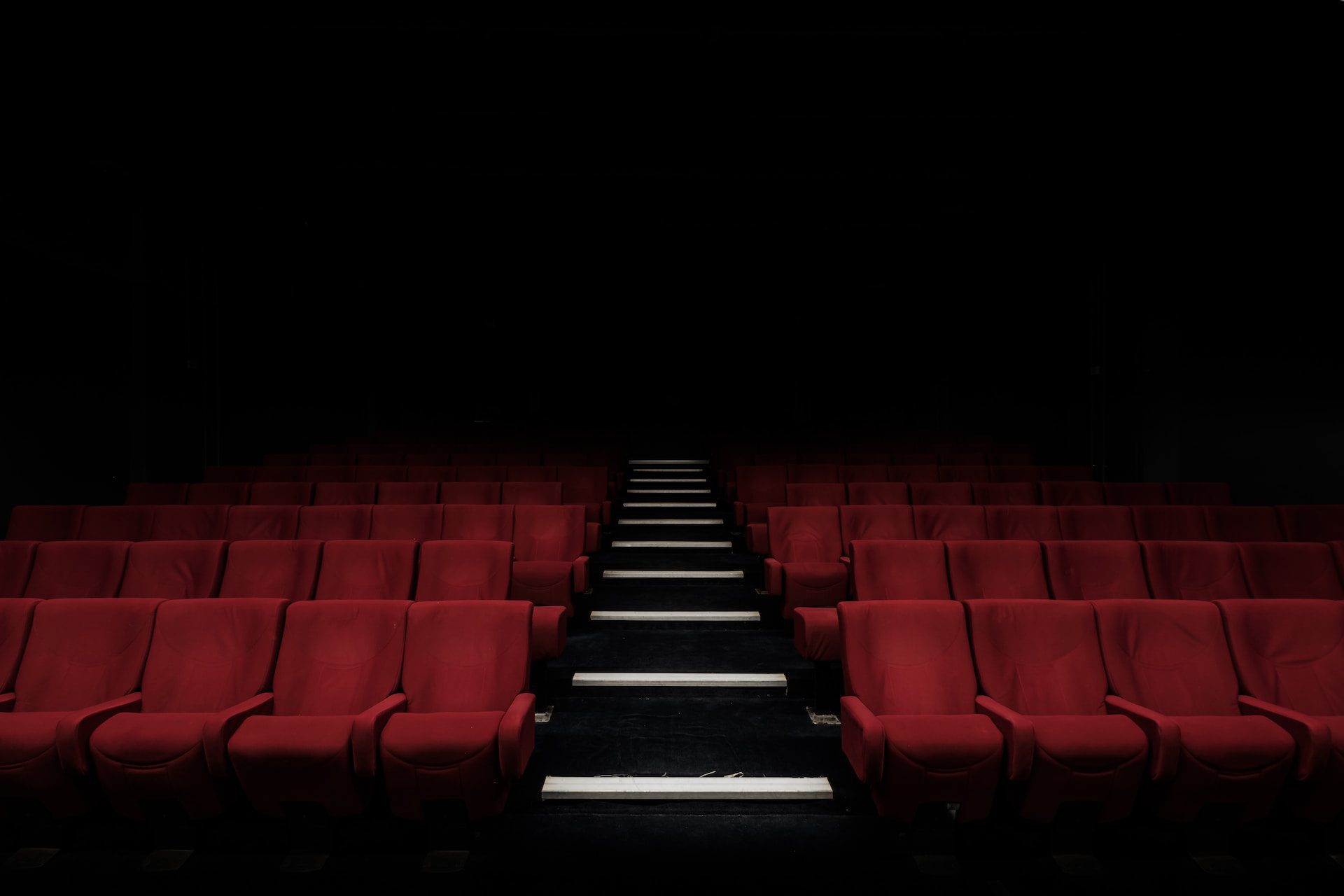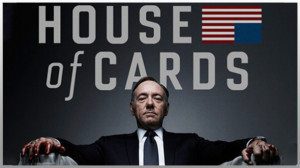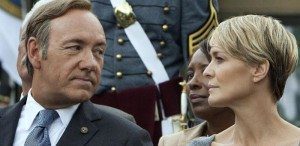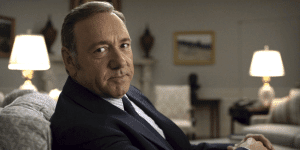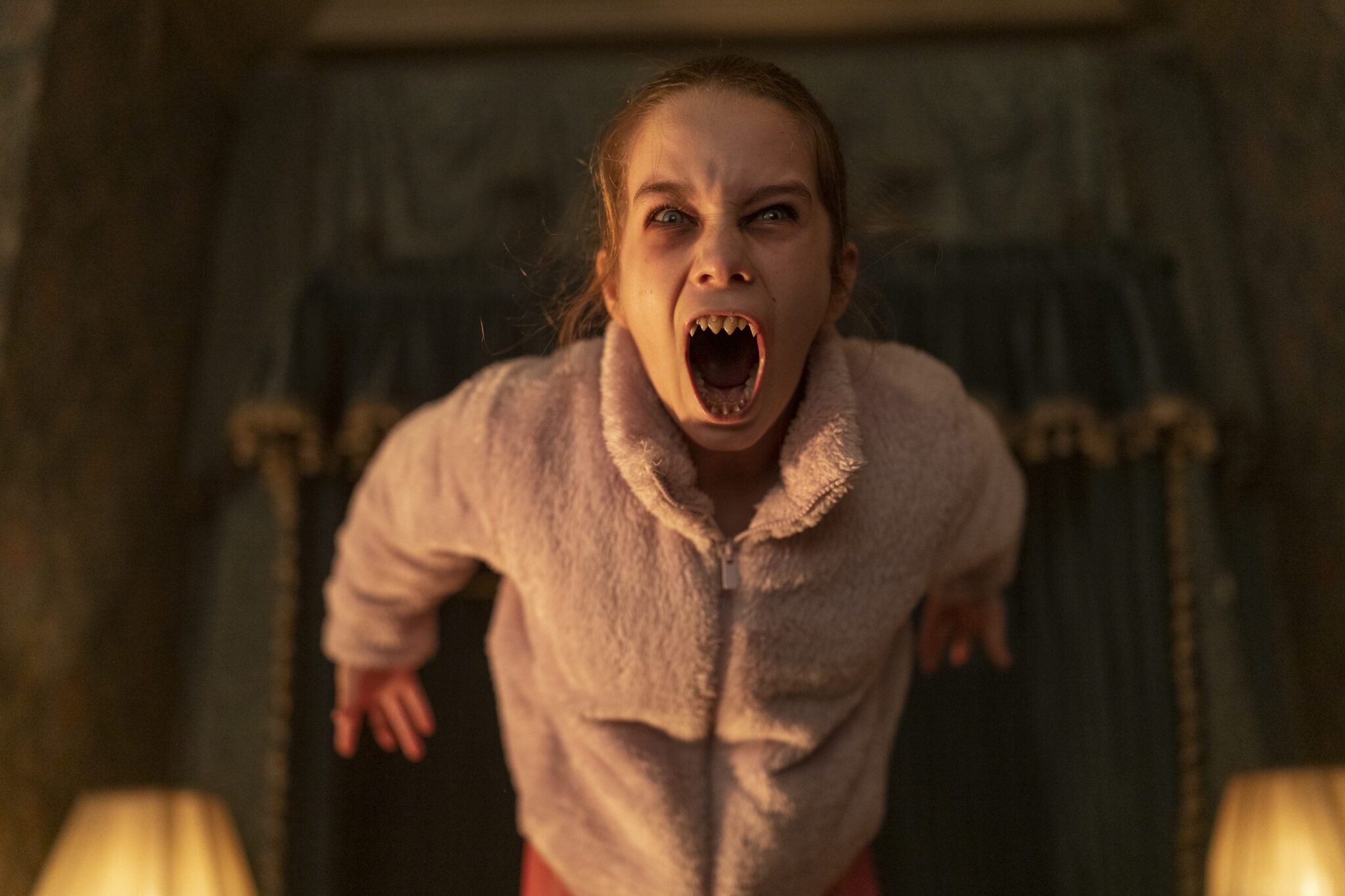?Look like the innocent flower; but be the serpent under?t? ? Lady Macbeth
If you?re late to the game, House of Cards follows the political scandals of Frank Underwood (Kevin Spacey), a presidential WHIP with an incredible lust for power. Dissatisfied with his place in the government structure, Frank and his ferocious wife, Claire (Robin Wright) begin to unravel their elaborate plans to secure their legacy in American history. As each season unfolds, we watch as they willingly manipulate the law (and law makers) and usurp global powers as they attempt to grow and maintain their grip on the US presidency.
In many ways, House of Cards sets itself apart from other White House dramas in it?s tone. Rather than establishing itself as merely sensationalistic or a morality play, Cards usually takes its time to position its players on the chessboard before making their big move. Many have made comparisons to the show feeling more like Shakespeare than Shonda Rhimes, an appraisal that makes the showrunners proud. In many ways, Frank Underwood feels like a modern embodiment of Richard III with Claire often stealing scenes as his Lady Macbeth.
Herein lies the magic of the show. While following the career of a morally corrupt politician is hardly a new concept, there is something unique about Frank that makes him not only likeable but, arguably, even sympathetic (at times). Watching Frank and Claire orchestrate the judicial system as puppet masters becomes almost hypnotic as we are mesmerized by their cunning yet, somehow, even root for their success. (To be honest, I haven?t been so morally conflicted on a series since Breaking Bad as, in both cases, I found myself cheering for the main characters to perform actions that I?d otherwise find reprehensible in reality.)
This, to me, is the most interesting tension about the show. Like other recent hits like Breaking Bad and Game of Thrones, Cards glorifies the actions of those who do evil and even punishes those who seek to bring them to justice. We want the Underwoods to succeed. The appeal of the darkness is undeniable, because the deeds are evil. It?s the ultimate demonstration of the idea that the ends justify the means (although the ends usually only benefit Frank and Claire). Oh, there is definitely ?something rotten in the state of [Washington]? but, every time Frank addresses the audience (a staple of the show), we become more like his accomplices than judges.
Meanwhile, however, there is also a very clear real sense of inevitability within Cards that suggests the question isn?t ?Can Frank be stopped?? but rather, ?When will it happen?? We have no doubt that Frank?s ?sins will find [him] out??and that the fall will be spectacular.
We revel in their rise to power?but anxiously await their destruction.
Watching the Underwoods, I find myself confronted with the resolve of my own moral compass. While we clearly know the right actions to do, how often do we allow ourselves the freedom to bend the rules, simply because it benefits us. No, we?re not Frank or Claire? but somehow, their actions expose something deeply rooted within ourselves. Despite our public fa?ades, we all battle our own darkness and self-interest as we seek to cement our own legacies.
And I?m sure that Shakespeare would agree that that is the greatest tragedy of all.
Season 4 of House of Cards was released on Netflix on March 4th.

